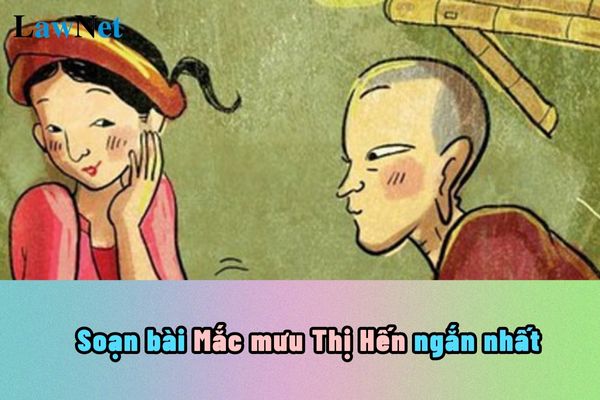Vietnam: What are the guidelines for preparing the shortest lesson "Caught in Thi Hen's Trap/Mắc mưu Thị Hến"? What are the 08 steps for development of 10th-grade textbooks?
What are the guidelines for preparing the shortest lesson "Caught in Thi Hen's Trap/Mắc mưu Thị Hến"?
The 10th-grade students in Vietnam may refer to the guidelines for preparing the shortest lesson "Caught in Thi Hen's Trap/Mắc mưu Thị Hến" below:
|
Preparing the shortest lesson "Caught in Thi Hen's Trap/Mắc mưu Thị Hến" Main Content: |
*Note: The guidelines for preparing the shortest lesson "Caught in Thi Hen's Trap/Mắc mưu Thị Hến" are for reference only./.

What are the guidelines for preparing the shortest lesson "Caught in Thi Hen's Trap/Mắc mưu Thị Hến"? What are the 08 steps for development of 10th-grade textbooks? (Image from Internet)
What are the 08 steps for development of 10th-grade textbooks in Vietnam?
Under Clause 1 Article 9 of the Regulation on standards and procedures for development and revision of textbooks; standards for textbook developers and organization and operation of the National Textbook Appraisal Council issued together with Circular 33/2017/TT-BGDDT amended by Clause 2 Article 1 Circular 05/2022/TT-BGDDT, the 08 steps for development of 10th-grade textbooks in Vietnam include:
Step 1: Select authors for development
- Organizations and individuals developing textbooks select authors according to standards.
- Authors develop an overall outline, detailed outline, and development plan based on the general education curriculum issued by the Minister of Education and Training.
- Authors must ensure progress and quality in textbook development.
Step 2: Develop, edit, design, illustrate, and complete at least one lesson.
- Conduct experimental teaching to offer feedback and refine that lesson with contributions and consensus from all authors to construct other lessons.
Step 3: Gather opinions from teachers, education managers, scientists, and educators knowledgeable about general education to review and evaluate textbook drafts according to legal content standards.
Step 4: Complete the textbook draft and submit it to the Ministry of Education and Training for assessment.
Step 5: The Ministry of Education and Training assesses the textbook draft.
Step 6: Organizations and individuals developing textbooks complete the textbook draft after evaluation.
Step 7: The Ministry of Education and Training approves and authorizes the use of the textbook.
Step 8: Organizations and individuals developing textbooks proceed to publish and distribute the textbook.
What are the contents of 10th-grade textbooks in Vietnam under the new general education program?
Under Article 5 of the Regulation on standards and procedures for development and revision of textbooks; standards for textbook developers and organization and operation of the National Textbook Appraisal Council issued together with Circular 33/2017/TT-BGDDT, the contents of 10th-grade textbooks must meet the following conditions:
- The contents of textbooks must present accurately and adequately the contents of the subject’s program or the educational activity; ensure the basic, scientific and practical characteristics and be consistent with the reality of Vietnam.
- The terms, concepts, definitions, figures, events, images used in textbooks shall be accurate, objective, consistent and suitable for students’ ages; the cited figures, events, images shall have clear sources.
- New scientific achievements relating to the subject's program, educational activities shall be updated on the textbook to meet the requirements of international integration and the objectives of the subject’s program and educational activity.
- The contents of national sovereignty, human rights, children’s rights, gender equality, sustainable development, environment protection, adaptation to climate change shall be presented properly.
*Note: Textbooks in each locality will be selected by schools (from the list of textbooks approved by the Minister of Education and Training) and the Chairman of the Provincial People's Committee will decide on the textbooks to be used within the area. Therefore, students from different regions across the country may learn different Mathematics textbooks.
Currently, there are 3 sets of textbooks: Connecting Knowledge with Life; Kite; and Creative Horizons. (Kết nối tri thức với cuộc sống; Cánh diều; Chân trời sáng tạo)

